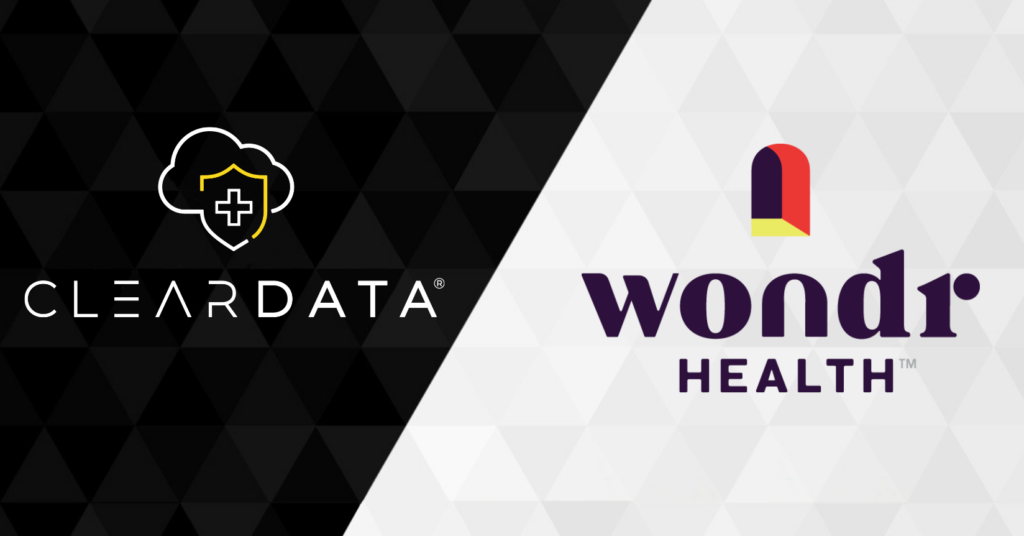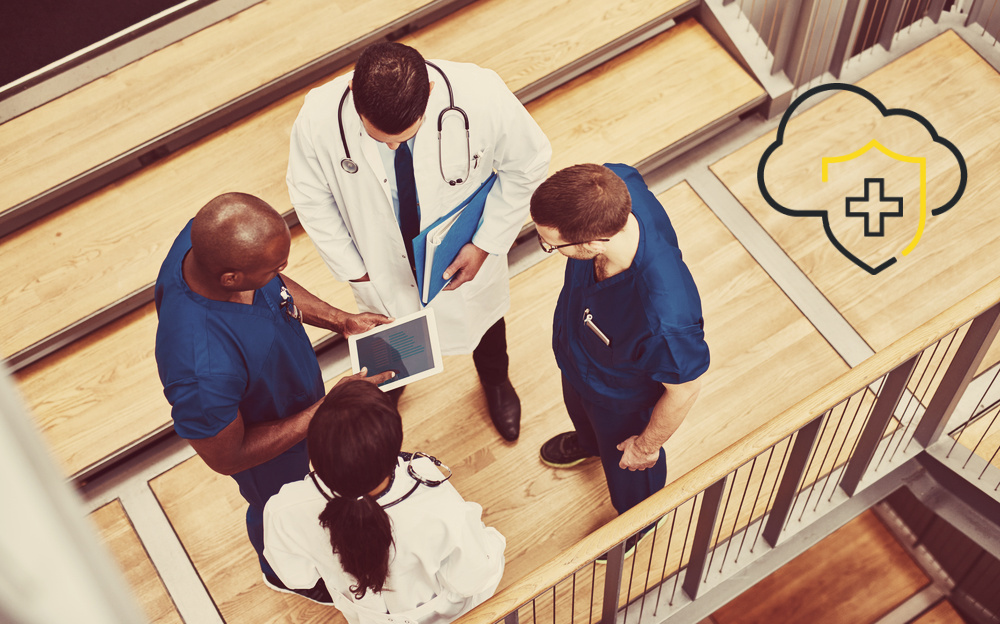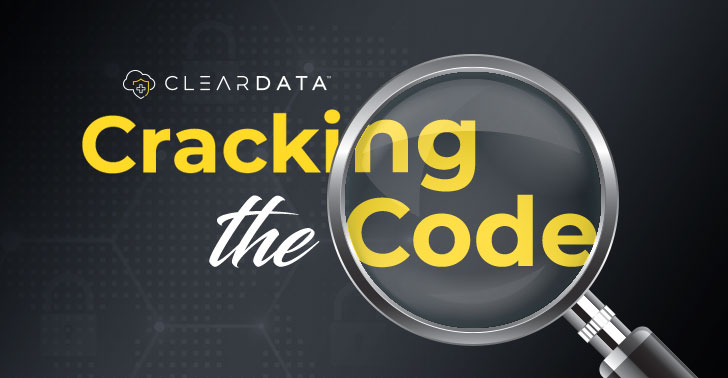ClearDATA SOC 2 Audit Completion: Leading Healthcare IT Compliance
Data breaches and cyber threats are rampant, especially in healthcare. Therefore, the healthcare industry must implement robust measures to safeguard sensitive patient information. One such measure is conducting a SOC 2 audit and receiving a satisfactory attestation from a qualified third party.
The SOC 2 audit is designed to evaluate service providers’ demonstration of security practices and data protection measures based on the services delivered to their clients. An attestation from an authorized SOC 2 auditing firm is important for healthcare organizations to demonstrate sufficient data protection measures, especially due to the sensitive nature of the data they handle! This blog delves into why SOC 2 is crucial for the healthcare sector, and how ClearDATA aligns its approach with the AICPA‘s guidelines to deliver superior data protection.

ClearDATA’s SOC 2 audit completion and benefits
ClearDATA is proud to announce the successful completion of our SOC 2 audit, a significant milestone that underscores our commitment to data security and compliance in healthcare.
What is a SOC 2 Audit?
SOC 2, or Service Organization Control 2, is a type of audit designed to assess the controls and processes involved in ensuring the security, availability, processing integrity, confidentiality, and privacy of customer data.
Developed by the American Institute of CPAs (AICPA), SOC 2 audits are essential for service providers that store customer data in the cloud. The audit evaluates the effectiveness of an organization’s controls based on the AICPA’s Trust Services Criteria, where applicable to the service providers core business functions. This framework focuses on five Trust Services Criteria (TSC): Security, Availability, Processing Integrity, Confidentiality, and Privacy. Security is a requirement for SOC 2, while the remaining categories are only required for service providers that support any of the requirements, as part of their service delivery.
The Importance of SOC 2 in Healthcare
Healthcare organizations are prime targets for cyberattacks because of the vast amounts of sensitive protected health information (PHI) they collect and store. Breaches can have devastating consequences, including patient safety, identity theft, financial loss, and damage to a healthcare provider’s reputation. Therefore, adhering to SOC 2 audit requirements helps healthcare service providers demonstrate that their management practices meet industry standards and best practices.
Patients need to be confident that their PHI is protected and handled with the utmost care. SOC 2 completion demonstrates an organization’s commitment to data security by instilling trust and ensuring that stringent security controls are in place.
Measures ClearDATA Took to Achieve SOC 2 Compliance in Healthcare:
- Continuous Compliance: Continuous Compliance: ClearDATA’s CyberHealth™ Platform enforces continuous compliance with SOC 2 standards through visibility, control, and resilience in managing healthcare workloads in the public cloud.
- Proactive Risk Mitigation: The platform provides a comprehensive approach to vulnerability management and risk mitigation. Named compliance engineers work closely with clients to assess risks, resolve issues, and provide relevant guidance for maintaining compliant resources.
- Tooling to Support Audits: The CyberHealth Platform is healthcare cloud security posture management (CSPM) software that prevents, detects, and remediates compliance drift and sensitive data security gaps.
- Customized Reporting: The CyberHealth Platform offers near real-time automation and highly customized reports, providing complete visibility and control over compliance status across various cloud environments.
Why is SOC 2 Important for Healthcare IT Companies?
Potential Benefits of SOC 2 Compliance
- Enhanced Security Posture: By undergoing SOC 2 audits, organizations can demonstrate their commitment to protecting customer data. By adhering to applicable TSC requirements, organizations can enhance their overall security posture and reduce the risk of security incidents, such as a data breach.
- Increased Trust and Credibility: SOC 2 compliance provides assurances for customers and stakeholders that the organization takes data protection seriously. This builds trust and enhances the company’s credibility in the marketplace.
- Competitive Advantage: SOC 2 compliance sets companies apart from competitors who may not have undergone such rigorous evaluations. It becomes a key differentiator when customers evaluate potential vendors.
A SOC 2 audit involves an evaluation of your company’s implementation of specific policies, processes, and technology controls. These may include:
| Information Security Management | Audit Logging and Monitoring |
| Access Controls | Third Party Risk Management |
| Change Management | Data Classification |
| Password and Privilege Management | Acceptable Use |
| Risk Management | System/Software Security Requirements |
| Incident Response | Business Continuity and Disaster Recovery |
ClearDATA’s approach to SOC 2 compliance is formally aligned with the principles set forth by the AICPA. By leveraging these guidelines, ClearDATA ensures that healthcare IT systems are not only compliant but also optimized for the unique requirements of the healthcare industry.
Connect with a healthcare cybersecurity expert now and safeguard your systems today.
Speak with an expert.
FAQ
Why is SOC 2 compliance essential for healthcare organizations?
SOC 2 helps healthcare organizations prove they have robust systems in place to protect sensitive patient data. It builds trust with patients and partners by demonstrating adherence to industry-standard security, confidentiality, and privacy controls. With rising cyber threats and strict regulatory expectations, SOC 2 is a key differentiator that signals proactive risk management and data protection.
How does ClearDATA ensure ongoing SOC 2 compliance?
ClearDATA enforces continuous SOC 2 compliance through its CyberHealth™ Platform. This includes automated monitoring, real-time reporting, vulnerability management, and expert-led remediation. The platform prevents compliance drift and provides full visibility into cloud environments, ensuring healthcare workloads remain secure and audit-ready at all times.
What’s the difference between a SOC 2 audit and HITRUST certification?
While both assess data security and compliance, SOC 2 focuses on an organization’s internal controls related to the AICPA’s Trust Services Criteria. HITRUST is a more prescriptive, healthcare-specific framework combining multiple regulations (like HIPAA, NIST, and ISO).
Many healthcare IT companies pursue both to demonstrate comprehensive security and compliance coverage and to partner with businesses who require their vendors and partners be HITRUST certified.
Are You Managing Sensitive Healthcare Information in the Cloud?



